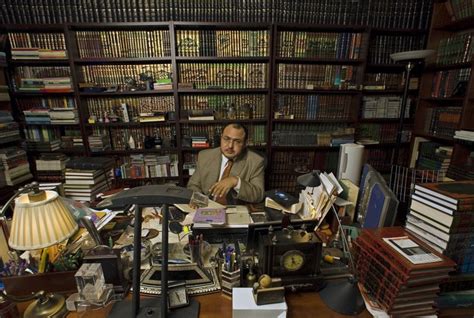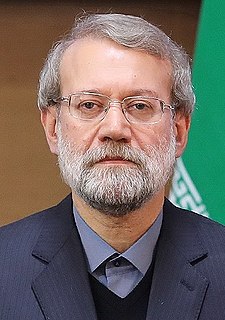A Quote by Martin Jacques
Israel is the agent and surrogate of the United States and as such is treated entirely differently from every other country in the region. How can anyone expect Iran to accept that it is right for Israel to have nuclear weapons while itself being disallowed?
Related Quotes
Iran has been calling for it for years, and the Arab countries support it. Everyone except the United States and Israel support it. The U.S. won't allow it because it means inspecting Israel's nuclear weapons. The U.S. has continued to block it, and in fact blocked it again just a couple of days ago; it just wasn't widely reported. Iran's nuclear program, as U.S. intelligence points out, is deterrent, and the bottom line is that the U.S. and Israel don't want Iran to have a deterrent.
My reading of the threat from Iran is that if Iran acquires nuclear weapons, it is an existential threat to the State of Israel and to other countries in the region because the other countries in the region will feel compelling requirement to acquire nuclear weapons as well. Now we cannot a second Holocaust.
Why doesn't anyone address the substantive question of why other states blatantly interfere in Israel's internal affairs? Israel does not meddle in the affairs of other states in a similar way, so why do other countries feel entitled to do this to Israel? These actions violate Israeli sovereignty and I expect European Union member states to act differently.
What I believe is that the United States is going to be playing on a level playing field in dealing with Israel and the Palestinian people. I am 100 percent pro Israel in the sense of Israel's right to exist, I lived in Israel, I have family in Israel, Israel has the right to live not only in peace and security, but to know that their very existence will be protected by the United States government.
I want to reassert again the position of the United States that with regards to Iran, we will not allow Iran to develop a nuclear weapon, period. We will not allow them to develop a nuclear weapon, and we will exert all options in the effort to ensure that that does not happen...The United States stands firmly with Israel, and we have a rock solid commitment to the security of Israel and to the security of its citizens.
Israel is a solid ally of the United States. We will rise to Israel's defense, if need be. So this kind of menacing talk [by the President of Iran] is disturbing. It's not only disturbing to the United States, it's disturbing for other countries in the world, as well. Asked whether he meant the U.S. would rise to Israel's defense militarily, Bush said: "You bet, we'll defend Israel."
I think it is less the limited amount of information than the filters that information about the Middle East must pass through before being fairly addressed in the mainstream media. In more intellectual and geopolitical terms, the perceptions of the region are distorted by a combination of Orientalism and the priorities of the state of Israel, including the refusal to discuss the relevance of Israel's nuclear weapons arsenal in the context of addressing Iran on its nuclear program.
If you want to find weapons of destruction, you can find them all over the place. Take, say, Israel. There is a very great concern right now about proliferation of nuclear weapons, as there should be. Israel has a couple of hundred nuclear weapons and also chemical and biological weapons. This stockpile is not only a threat in itself but encourages others to proliferate in reaction and in self-defense. Is anybody saying anything about this?
People in the United States don't like to hear it, but puritanical Islam has been on the rise because of our unequivocal policy of absolute support for Israel, regardless of what Israel does - even if they invade Lebanon and bombard a major city like Beirut, full of civilians. Israel has atomic bombs, but we go nuts if any Arab country or Iran develops even nuclear capabilities.
The issue has two dimensions. One is the legal dimension and the other one is the issue at the realpolitik. [In the] legal realm, we believe in equal rights for all people in all nations. If Israel, the United States, Russia, Pakistan, other countries, China, have the right to have a nuclear program and nuclear bomb, Iran, too, must have that same right. Now, at the realm of realpolitik, because there is a global consensus against Iran, and because there are all manner of dangers facing Iran, I am opposed to this program.
So much of the United State's political relationship with Israel is based on culture. Israel is the only Westernized culture in the region and the Middle Eastern countries bordering Israel are Arab, which is a totally different society. Even though Israel doesn't exactly feel like the United States, by comparison to its neighbors it's very Western.
That Iran is willing to threaten Israel is wrong[. . . .] We pose no threat and if we are conducting nuclear research and development we are no threat to Israel. We have no intention of aggression against any country. [. . .] Today we announce to you that the political will of Iran is aimed at the negotiated settlement of the case and we dont want to aggravate the situation in our region[. . . .] We know that this issue can be settled in a constructive dialogue and we welcome that.
































